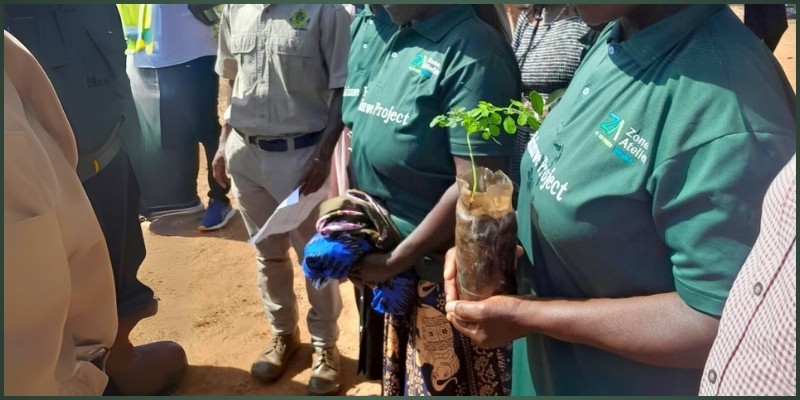Climate Change and Its Impact on Hwange

Hwange, Zimbabwe’s largest and most biodiverse national park, stands as a sanctuary of extraordinary wildlife, unique ecosystems and deeply rooted cultural heritage. But like many natural wonders across the globe, Hwange is now facing unprecedented challenges due to climate change. As the impacts ripple through our ecosystems, communities and conservation efforts, the need for collaborative, forward-thinking solutions has never been more urgent.
Climate change does not only reshape landscapes, it reshapes lives. Rural communities surrounding Hwange, especially in places like Dete, are seeing their livelihoods strained. Erratic rainfall has reduced agricultural productivity, led to soil degradation and increased water scarcity, making everyday survival more challenging.
In response to these escalating threats, the Dirimwe Project in Dete has emerged as a beacon of hope and innovation. This land regeneration and restoration initiative, spearheaded in collaboration with local communities, local institutions, researchers and authorities, focuses on rehabilitating the land while building climate resilience. Key to the project’s success is the construction of contour ridges and swales, designed to act as micro water reservoirs. These structures slow runoff, promote water infiltration into the soil and help reduce erosion - transforming degraded lands into productive, sustainable areas. This not only alleviates water stress but also supports agriculture and enhances ecosystem recovery.


Equally significant is the project’s inclusive approach. By prioritising the participation of women and youth, the Dirimwe Project ensures that conservation is not only environmentally effective but also socially just. Community-driven, the initiative fosters a sense of ownership and responsibility while safeguarding the long-term habitability of Hwange’s social-ecological systems.
Protecting Hwange from the impacts of climate change requires integrated, cooperative strategies. At the Association for Tourism Hwange (ATH), we are committed to working alongside all stakeholders: conservationists, community leaders, researchers and visitors, to defend the integrity of the park and its surroundings.
We recognise that climate adaptation is not just about science; it's about community, culture and co-creation. Whether through innovative projects like Dirimwe, sustainable tourism practices, or educational outreach, every effort counts in preserving Hwange for future generations.